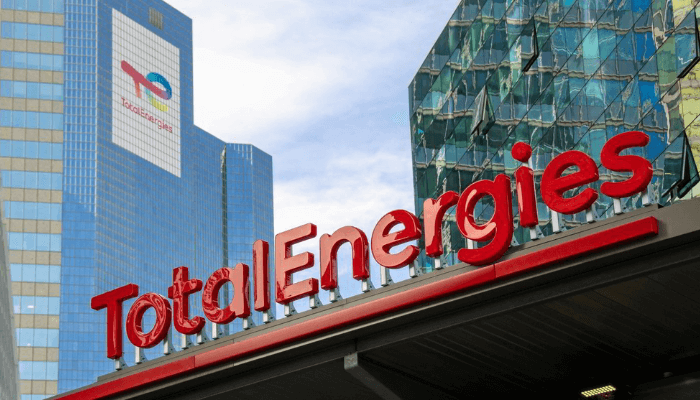TotalEnergies, a global energy company, is embarking on a significant initiative to bolster the production of biofuels in France, utilizing used cooking oil as a sustainable feedstock. This strategic move aligns with the company’s broader commitment to transitioning towards cleaner energy sources and reducing its carbon footprint. The core of this initiative is a recently inked 15-year agreement with Quatra, a European leader in the collection and recycling of used cooking oil. This partnership ensures a steady supply of 60,000 tonnes of used cooking oil annually, commencing in 2026, which will be instrumental in fueling TotalEnergies’ biorefineries.
This partnership plays a crucial role in securing the necessary raw material for the production of both biodiesel, used in road transportation, and sustainable aviation fuel (SAF), a cleaner alternative to conventional jet fuel. Biofuels, derived from organic matter like plants, algae, and waste, represent a renewable alternative to fossil fuels, contributing to reduced greenhouse gas emissions and a more sustainable energy landscape. The sourcing of used cooking oil from within France and other European countries further enhances the environmental benefits by promoting a circular economy and minimizing transportation-related emissions.
The agreement delineates a clear process for the collection and processing of the used cooking oil. Quatra will collect the oil directly from restaurants, restaurant chains, and industrial food processors across France and Europe. The collected oil will then be transported to Quatra’s facilities for initial filtering, ensuring the removal of impurities and ensuring the quality of the feedstock. Subsequently, the filtered used cooking oil will be delivered to TotalEnergies’ biorefineries, where it will be transformed into biofuels.
TotalEnergies has strategically converted two of its conventional refineries, located at La Mède in southern France and Grandpuits near Paris, into biorefineries. The La Mède facility, operational since 2019, boasts an annual biofuel production capacity of 500,000 tonnes and currently stands as the sole producer of hydrotreated vegetable oil (HVO) biodiesel in France. In addition to biodiesel, La Mède will also commence the production of SAF, slated to supply airports in southern France. The Grandpuits refinery is undergoing a complete transformation into a zero-crude complex, featuring a biorefinery with an annual SAF production capacity of 230,000 tonnes, with commissioning anticipated in 2026. For the Grandpuits facility, TotalEnergies has partnered with SARIA, another key player in organic waste recycling, to secure a substantial portion of the required feedstock.
This strategic collaboration between TotalEnergies and Quatra has been met with enthusiasm from both companies. Valérie Goff, Senior Vice President of Renewable Fuels & Chemicals at TotalEnergies, highlighted the agreement’s significance in securing the required feedstock for biofuel production, emphasizing the company’s commitment to developing biofuels as a strategic pillar in its journey towards net-zero emissions. By actively reducing the carbon footprint of its energy products, TotalEnergies aims to support its customers’ sustainability goals and contribute to a collective effort towards a cleaner energy future.
From Quatra’s perspective, the partnership represents a successful example of their philosophy of forging long-term collaborations with leading industrial groups, focusing on a combination of logistics, environmental responsibility, and financial viability. Pol Van Pollaert, Co-Chief Executive Officer at Quatra, emphasized the importance of contributing to a sustainable value chain by supplying locally sourced used cooking oil. This allows Quatra to concentrate on its core competency of efficient used cooking oil collection, while TotalEnergies transforms this valuable resource into biofuel, creating a symbiotic relationship that benefits both companies and the environment. This comprehensive approach underlines the growing importance of circular economy models in the energy transition, transforming waste into a valuable resource and creating a more sustainable future.














